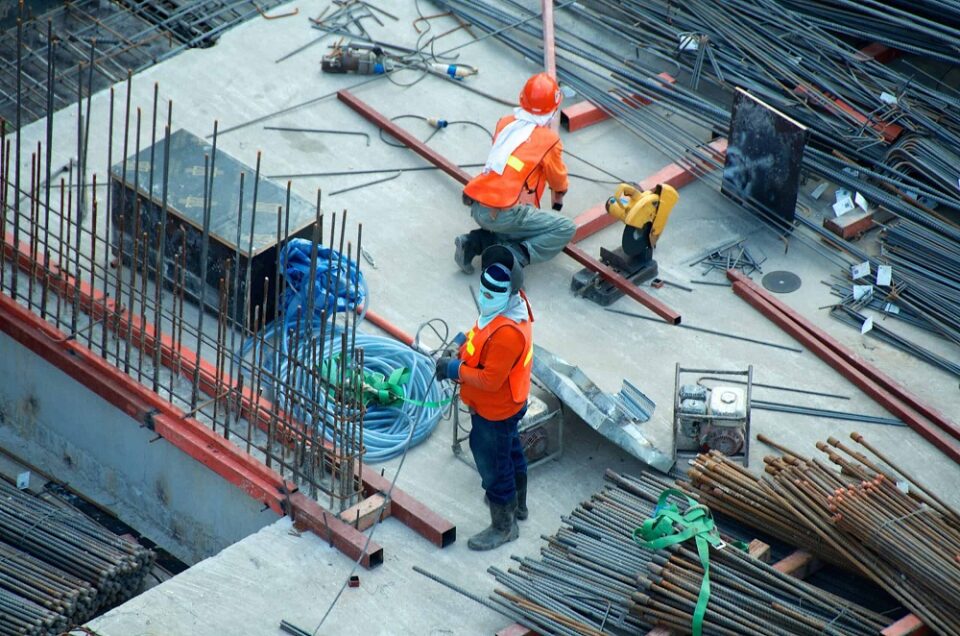Building a home or undertaking a renovation project is a major undertaking that requires a lot of planning and hard work. One of the most critical aspects of any construction project is sourcing top-quality building materials. In Melbourne, finding the right materials can be a daunting task, given the myriad of options available in the market. This blog post will outline some pro tips for sourcing top-quality building materials in Melbourne. By following these tips, you can be sure that your project will run smoothly, and the end result will be a structurally sound building that is both durable and aesthetically appealing.
No matter whether you’re constructing a commercial or residential site, there are steps you can take to ensure you’ll get the best materials possible. If you are involved in construction in Melbourne, especially large-scale projects, then you know that finding quality civil supply products is essential. This guide will cover what civil supply accessories are and how they are used in construction.
Benefits of Sourcing Top-Quality Building Materials in Melbourne
One of the primary reasons to invest in top-quality building materials is the durability and strength that they provide. When you use substandard materials, you risk having a building that may look good on the surface but lacks the strength and durability to last for many years. This means that you may need to undertake costly repairs or even rebuild the structure altogether in the future. On the other hand, investing in high-quality materials means that your building will have the structural integrity required to withstand harsh weather conditions, earthquakes, and other natural disasters.
Impact on project cost and timeline
Another reason to invest in top-quality building materials is the positive impact they have on the overall project cost and timeline. Using cheap materials may result in cost savings in the short term, but they may end up costing you more in the long run due to the extra repairs and maintenance costs incurred. Additionally, substandard materials can cause project delays and lead to extended construction timelines. On the other hand, high-quality materials may initially seem expensive, but they will save you money in the long run by reducing maintenance costs and limiting delays to the construction timeline.
Research suppliers
When sourcing building materials, it is essential to research the various suppliers available in the market. Look for suppliers who have a good reputation for providing high-quality materials and excellent customer service. Suppliers with a good reputation are likely to deliver reliable and consistent materials, ensuring that your project runs smoothly.
Evaluate supplier reviews and ratings
Another way to research potential suppliers is to check their customer reviews and ratings online. This feedback provides insight into the supplier’s reliability, pricing, and product quality. You can also check trade magazines and online directories, such as the National Association of Home Builders, to find reputable building materials vendors.
Determine your materials needs
Before purchasing materials, it is crucial to determine the quantity you require for your project. This can help you avoid overbuying, which will lead to unnecessary expenses. On the other hand, underbuying can cause delays due to insufficient materials or require costly reorders.
Identify specific materials required
It is also essential to identify the specific materials you need for your project. For example, if you are building a foundation, you will need concrete, rebar, and soil. Once you have identified the necessary materials, it is easier to source them from a supplier that specializes in those specific materials.
Understand costs and prepare a budget
The pricing of building materials varies depending on the required quality level and supplier. It is advisable to compare quotations from different suppliers to identify the most cost-effective options. Keep in mind that pricing should not be the sole determining factor; product quality and reliability are also essential.
Prepare a budget
Creating a budget and sticking to it is crucial when undertaking any construction project. Before commencing the procurement process, it is crucial to determine how much you are willing to spend on building materials. A detailed budget can help you track expenses and make more informed purchasing decisions.
Order samples
It is advisable to request product samples from potential suppliers before committing to purchasing the materials. Samples provide a visual representation of the product quality and allow you to assess whether the materials are a good fit for your project.
Test samples
You can also conduct tests on the samples to gauge their strength and durability. This ensures that the materials are suitable for your desired application and helps avoid any potential complications that may arise during the construction process.
Verify supplier delivery timelines
When working with suppliers, it is crucial to verify their delivery timelines. Delays can cause unforeseen project complications and may result in additional costs. Verifying lead times and delivery schedules is essential to ensure that the project timeline is not compromised.
Confirm delivery logistics
It is also crucial to confirm the mode of delivery and ensure that the supplier delivers the materials safely. Issues such as product damage, incorrect deliveries, and supply chain bottlenecks can cause a strain on the construction timeline and result in unnecessary expenses.
Conclusion
Sourcing top-quality building materials in Melbourne requires careful planning and consideration. By thoroughly researching suppliers, determining your material needs, budgeting, and verifying delivery timelines, you can ensure that your project runs smoothly and efficiently. Remember that the selection of high-quality building materials will not only enhance the aesthetic appeal of your project but also improve the durability and reliability of your building.

